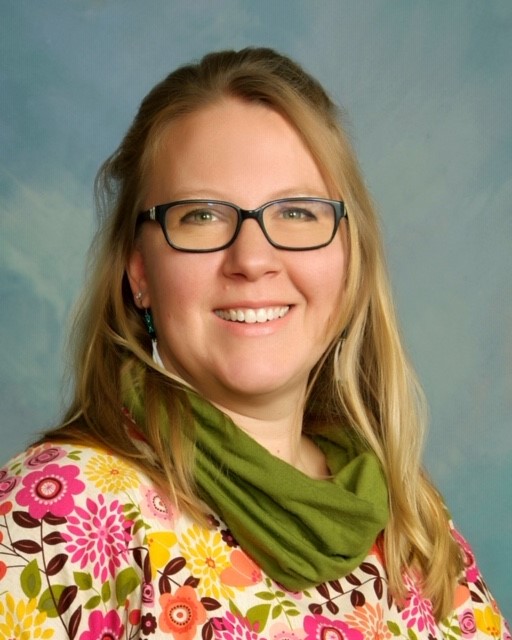Jennifer Showalter Yeoman
 As a foster parent, CIRI shareholder Jennifer Showalter Yeoman (Dena’ina Athabascan) has made it her life’s mission to help stem the tide of intergenerational trauma that has impacted the lives of Alaska Native children and families. Over 20-plus years as a foster parent, “I’ve seen child welfare up close—the ups and downs, the good and the bad,” Jennifer said.
As a foster parent, CIRI shareholder Jennifer Showalter Yeoman (Dena’ina Athabascan) has made it her life’s mission to help stem the tide of intergenerational trauma that has impacted the lives of Alaska Native children and families. Over 20-plus years as a foster parent, “I’ve seen child welfare up close—the ups and downs, the good and the bad,” Jennifer said.
A disproportionately high number of Alaska Native children account for the state’s out-of-home foster care placements—roughly 55 percent, though they account for only about 20 percent of the state’s overall child population. According to the Bureau of Indian Affairs, nationally, Alaska Native and American Indian (AN/AI) children are 2.5 times more likely to end up in state foster care than white children.
A federal law that seeks to keep AN/AI children with AN/AI families, Congress passed the Indian Child Welfare Act (ICWA) in 1978 in response to the high number of AN/AI children being removed from their homes by both public and private agencies.
“I think it’s vitally important for Alaska Native adults to foster and adopt Alaska Native infants and children,” Jennifer said. “Even with ICWA, severe disproportionality still exists. There is a tremendous need to focus resources and investment on creating opportunities and better outcomes for Alaska Native youth.”
Jennifer didn’t grow up with strong ties to Alaska Native culture. She spent her childhood in Soldotna, Alaska, where the vast majority of residents are white. “It’s kind of embarrassing to say now, but I was just like any other Soldotna kid—I have blonde hair and fair skin, so everyone assumed I was white. Once in a while, things would crop up. I remember going on a field trip and there being questions about Alaska’s first people, and I was excited to know I was an Alaska Native person.”
After high school, Jennifer enrolled at the University of Alaska Fairbanks, pursuing dual degrees in anthropology and social work. “It was during that time, as I was learning more about Alaska Native culture, that everything really clicked,” Jennifer explained. “I came to the realization that there would be a time in my life I would be there to help my people.”
Jennifer’s first job out of college was with Alaska Children’s Services, a nonprofit based in Anchorage, followed by a four-year stint as an ICWA worker with Kenaitze Indian Tribe (the Tribe) in Kenai, Alaska. “I wasn’t familiar with the scope (of Alaska Native child welfare policy and practice) prior to becoming an ICWA worker, but you learn a lot about children’s lives and the effects of historical trauma,” Jennifer said.
Jennifer inherited CIRI shares through her uncle, Claude “Bobby” Showalter, who passed away in 2004, and is also connected to CIRI through her father, James Showalter. A commercial fisherman passionate about subsistence rights, James served on the council of the Tribe when Jennifer was growing up.
“My father’s involvement kind of planted the seed for me, though the idea of becoming more involved with the Tribe didn’t click for me until I was in college,” Jennifer said. She has served continuously on the Tribal Council since 2012, and in October 2018, she was re-elected to another two-year term. She is passionate about the Tribe’s programs, services and areas of advocacy, including Dena’ina language preservation, Alaska Native health and wellness, subsistence rights and youth programs.
Jennifer became a Tribal foster parent in 1997, one year after giving birth to her first biological child, a son named Paul. “I had several kids who were in Tribal custody stay with me for short durations, as well as one family member who stayed for four years,” Jennifer said. “Eventually, I became licensed with the State of Alaska as a foster parent and adopted four children through the foster care system.” Currently, Jennifer and her husband have two biological children, two adopted children and one foster child living at home. Their oldest living biological child, a daughter, attends college out of state. Paul passed away in 2006, when he was 8 years old.
“Paul was my first child and he died in an automobile accident. I was driving, so it was extremely devastating for everyone,” Jennifer shared. “I was hospitalized for approximately three weeks as a result of the accident and had to go through speech, physical and occupational therapy.
“Any sad circumstance you go through, at some point you have to ask yourself, ‘What did I learn from that?’,” Jennifer mused. “When I was in the hospital recovering, one of the nurses was pregnant. I told her, ‘Whatever you do, just love your baby.’ At the end of the day, remember to value and embrace what you have.”
While fostering has its share of challenges, “you don’t have to be perfect,” Jennifer emphasized. “You can still be the change for somebody in their life. Something that feels small and insignificant to you has the power to impact somebody in ways you’ll never know.”
In addition to a busy family life, Jennifer also works part-time at a hospital. In her spare time, “I absolutely love fishing our Tribal net,” Jennifer said. “My husband is from the Nome, Alaska, area, and I like going there to fish camp in the summertime and comparing the two cultures. My children are blessed to be able to learn from both my husband and myself the different cultures of their heritage.”
Jennifer is a strong advocate of AN/AI foster families for AN/AI children. For information about becoming a foster parent, visit www.dhss.alaska.gov/OCS.



